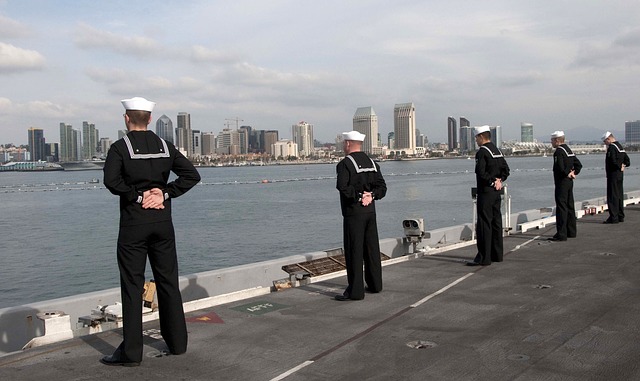Lawmakers applaud US Navy for declining application of 'atheist chaplain'

Two members of Congress have commended the U.S. Navy for rejecting the application of an atheist to be a chaplain for the service.
Jason Heap, who describes himself as a "humanist" and a "non-theist," had initially applied to become chaplain in 2013, but the service rejected the application.
A Navy chaplain advisory board had recently recommended approving Heap's application, prompting dozens of members of Congress to send letters to Navy leaders this month to express their opposition. Senators have argued that the service already has the authority to create programs to support atheists and humanists.
Sen. Roger Wicker (R-Miss.), who spearheaded the effort to block the appointment, said that the Navy's leadership did the "right thing" in rejecting Heap's application.
"The appointment of an atheist to an undeniably religious position is fundamentally incompatible with atheism's secularism. This decision preserves the distinct religious role that our chaplains carry out," he said, according to Washington Examiner.
The Navy Chaplain Corps is made up of officers representing a variety of religions including Christianity, Islam, and Buddhism, with the aim of promoting religious and spiritual well-being among sailors and Marines.
Rep. Doug Lamborn said that he was relieved to see the Navy's response, and stressed that allowing an atheist to serve as chaplain "would've gone against everything the chaplaincy was created to do."
"It would open the door to a host of so-called chaplains who represent philosophical worldviews and NOT the distinctly religious role of the Chaplain Corps," he added.
Retired Army chaplain Phil Wright, who currently serves as the executive director of the Chaplain Alliance for Religious Liberty, said that his organization is encouraged by the Navy's decision.
"We commend the Navy for its decision to not approve the humanist chaplain prospect because – just by definition of his belief system – he is hostile or antagonistic to religion and could not meet the religious needs of the men and women serving in the military," he said.
Wright said that his Christian group - whose members endorse two-thirds of the 5,500 chaplains serving in the military – does not understand what a humanist chaplain would offer to service members seeking spiritual guidance to deal with the effects of combat and other stresses of deployment.
Heap, who holds a master's degree in divinity from Texas Christian University as well as a theological history degree from Oxford, filed a lawsuit against the Navy and the Pentagon in 2014 after the rejection of his application to the Chaplain Corps.
He has tried several times to become a Navy chaplain since the Department of Defense started recognizing humanism as an official belief, but his attempts to date have been unsuccessful.











